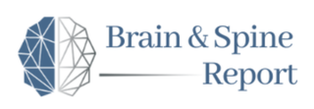|
Covid-19 has directly affected many clinical and research components of medical education. It has also posed unique challenges to students interested in neurosurgery.Medical student strategies for navigating the current landscape should be tailored by class year. This article highlights opportunities for med students to remain engaged in neurosurgery, broken down by class year. First and second year medical students may have the opportunity to start early on clinical research projects that typically occur in the summer. The shift from conventional didactics represents an opportunity for these students to delve deeper into exploring research opportunities by speaking to mentors, residents, and senior medical students. This will be even more vital for this cohort of students given that the Step 1 exam will be pass/fail so extra weight may be placed on academic productivity. These are temporary alternatives and certainly don't replace the value of in-person activities such as shadowing and scrubbing into cases. For third year medical students, this represents a truly uncertain period given the delay and cancellation of many conferences, training camps, and away rotations. Therefore, students at this stage should lean on their mentors and home program directors for guidance. The potential lack of letters from away rotations is unprecedented so no one knows what impact, if any, this will have. Nonetheless, students will need to make the most of preparing for sub-internships using online and text resources that have proliferated over the past few years. Students may also have to opportunity to finish clinical research projects and continue to remain strongly engaged with their home neurosurgery departments through online case conferences, journal clubs, etc. Fourth year medical students who have matched into neurosurgery programs may be anxious about starting their residency in the wake of a deadly pandemic. Nevertheless, some have already accepted the call of action by graduating early and joining the front lines at their home institutions. Reflections from recent graduates on this experience will be posted in the coming weeks. Despite the uncertainty of this pandemic, medical students have a unique opportunity to showcase their novel solutions and adaptability during this time. An article in Neurosurgery by Chae et al. titled "COVID-19 impact on the medical student path to neurosurgery" summarizes this disruption and proposes solutions to issues being exposed by Covid-19. For more information, click here. AuthorIyan Younus, MD Brain & Spine Report is a product of the Brain and Spine Group, Inc. and the statements made in this publication are the authors’ and do not imply endorsement by any other group. The material on this site is for informational purposes only and is not medical advice. Unauthorized reproduction is prohibited. Categories All Comments are closed.
|
Categories
All
Archives
October 2023
|





4/21/2020